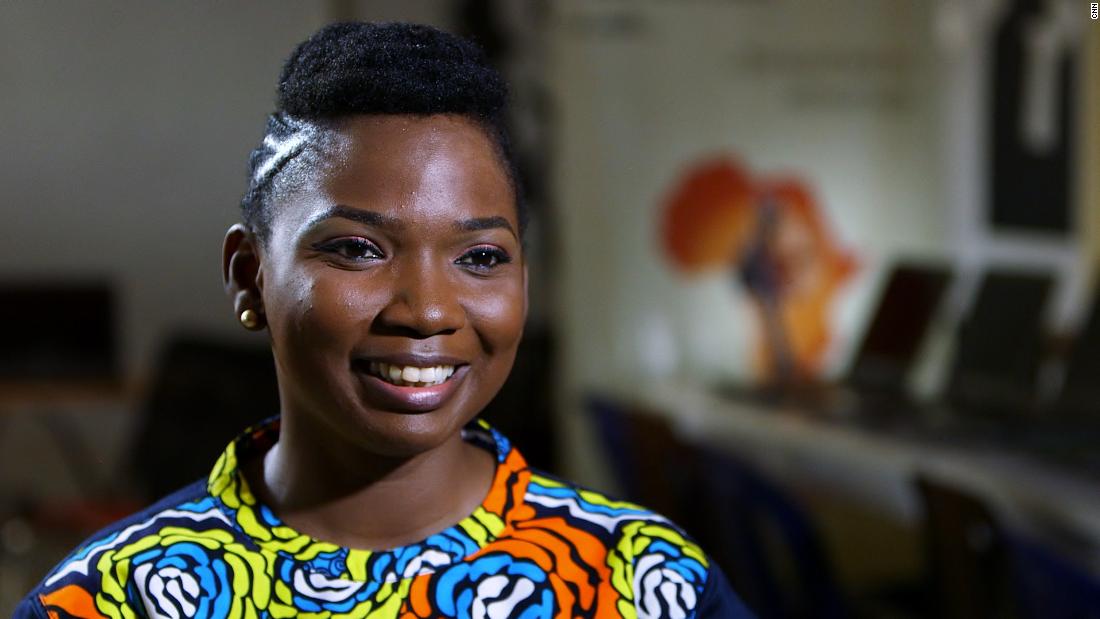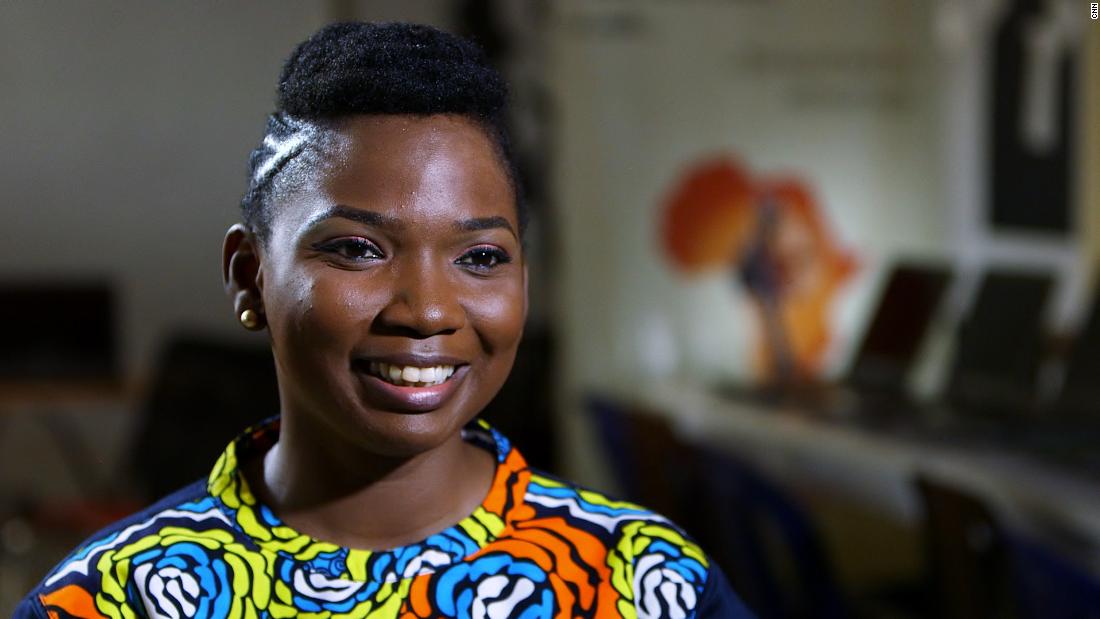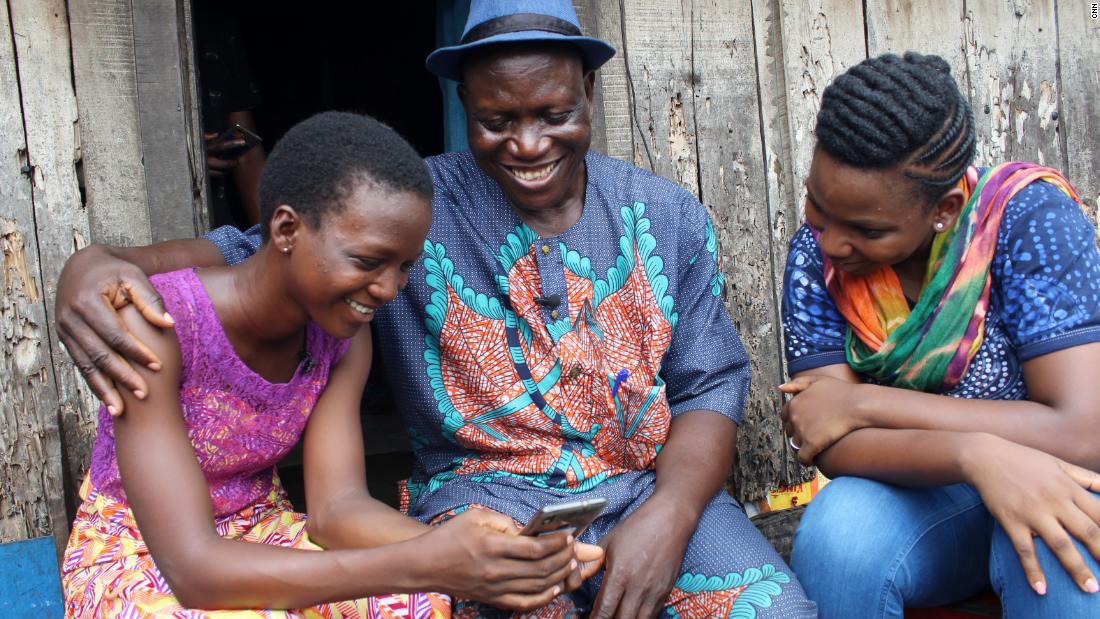
Lagos, Nigeria (CNN)Sharon Okpoe has lived her entire 17 years in Makokoknown as the world's largest "floating slum"built on a lagoon in Lagos, Nigeria.
Lagos has a thriving economy built on oil, finance and manufacturing. And the city is now considered Nigeria's Silicon Valley, with Facebook and Google opening offices there earlier this year.
Yet it's estimated that as many as two-thirds of the city's 21 million residents live in slums that lack reliable electricity, clean water and sanitation.
"When I went to Makoko for the first time, I was surprised to see the living conditions of human beings," recalls Abisoye Ajayi-Akinfolarin, a computer programmer in Lagos. "Most girls are trapped in a vicious cycle of poverty. Many of them are not thinking education, a plan for the future."
But several times a week, girls like Okpoe get a glimpse of another world when they attend GirlsCoding, a free program run by the Pearls Africa Foundation that seeks to educate -- and excite -- girls about computer programming. Since 2012, the group has helped more than 400 disadvantaged girls gain the technical skills and confidence they need to transform their lives.
It's the vision of Ajayi-Akinfolarin, who left a successful career to dedicate herself to this work. She'd noticed how few women worked in this growing field -- a 2013 government survey found that less than 8% of Nigerian women were employed in professional, managerial or technology jobs. She wanted to fix the gender gap.
"Technology is a space that's dominated by men. Why should we leave that to guys?" she said. "I believe girls need opportunities."
Now, after school and during the summer, dozens of girls ages 10 to 17 get trained in HTML, CSS, JavaScript, Python and Scratch. Students come from slums or other challenging circumstances, such as orphanages, correctional homes and even a camp for those who've had to flee Boko Haram.
"I believe you can still find diamonds in these places," Ajayi-Akinfolarin said. "They need to be shown another life."
One way her program does this is by taking the students to visit tech companies -- not only showing them what technology can do, but helping them visualize themselves joining the industry.
Okpoe, for one, has taken this to heart. She helped create an app called Makoko Fresh that went live this summer, enabling fishermen like her father to sell seafood directly to customers. She wants to become a software engineer and hopes to study computer science at Harvard.
"One thing I want my girls to hold onto is, regardless of where they are coming from, they can make it," she said. "They are coders. They are thinkers. Their future is bright."
CNN spoke to Ajayi-Akinfolarin about her work. Below is an edited version of their conversation.
CNN: How did you discover your love of computers?
Abisoye Ajayi-Akinfolarin: Life growing up for me was tough. Losing my mother at the age of 4, (being) beaten by my father -- life was just crazy. I learned to fend for myself.
My first experience with a computer was at the age of 10, on a school break, at a business center run by my brother's friend. Learning to type and modify text in Microsoft Word was just beautiful. But I really discovered my love for computers when I joined an IT firm as an intern after high school. When I got introduced to the world of computer programming, I was just natural with it. It just flowed. It's all about solving problems. I never knew that I'd be looking for solutions to problems regarding less privileged girls.
CNN: Isn't solving problems at the heart of your program?
Ajayi-Akinfolarin: That is what GirlsCoding is all about. We also want the girls to be leaders and change agents. We code towards a purpose, so they try to solve problems relating to what they see.
For example, one project that I really like is called Hope Baskets. The girls wanted to get beggars off the streets, so they created a website to be a bridge between the rich and the poor. They wanted a way where someone can declutter their house and give them a call. Then they take what they're getting rid of -- food, clothing, educational materials -- and give it to those in need.
We have another project called Break the Blade, about stopping female genital mutilation. These girls believe there is a lot of ignorance about this and want to be ambassadors on this issue. Eventually, they want to have a wrist band where you can press a button and it calls local authorities to come if FGM is about to take place.
The fact that they can create solutions to problems makes them feel bold. It is no longer about just coding.
CNN: What do you hope to do in the future?
Ajayi-Akinfolarin: Right now, we are expanding into different states in Nigeria. One day, we also hope to have an institution called Girls Village -- a residential program that would provide all types of training for young girls. We'd also give them a chance to incubate their ideas about how to solve problems in their communities and learn how to pitch them. You could call it a bigger version of what we are currently doing.
CNN: You gave up a career in a growing industry to do this work.
Ajayi-Akinfolarin: We want girls to be creators of tech, not mere users. Watching them write code is beautiful. Many of them never touched a computer before they got here. It's mind-blowing. The joy on their faces, that's more than money. I can't buy it.
Want to get involved? Check out the Pearls Africa Foundation website and see how to help.
To donate to Pearls Africa Foundation, click the CrowdRise widget below.
Original Article : HERE ; This post was curated & posted using : RealSpecific
=>
***********************************************
Originally Published Here: Disadvantaged girls change their communities by learning to code
************************************
=>
Disadvantaged girls change their communities by learning to code was originally posted by Monthly Mashed 3


No comments:
Post a Comment